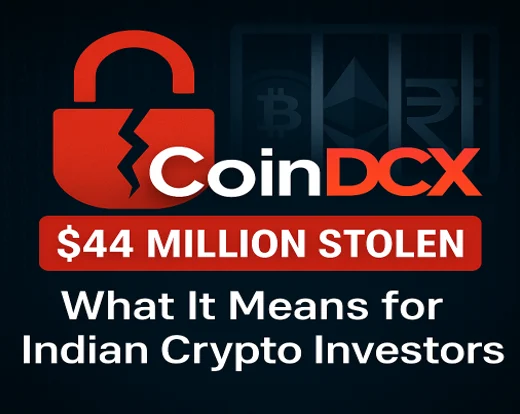
With the rise of digital technologies, we have seen a new form of digital ownership come into existence known as Non-Fungible Tokens or NFTs. NFTs are a type of digital asset that can represent anything from digital artwork, music, video game items or even tweets. These tokens are unique, meaning they cannot be replicated or replaced and are stored on a blockchain, a decentralized digital ledger that keeps track of ownership.
Social media platforms have become an integral part of our daily lives. They allow us to connect with others, share our thoughts and experiences, and create digital identities. A digital identity is the representation of a person or entity online. It includes information about the individual, such as their interests, behaviors and connections.
People have a special chance to claim their digital property and monetize their online presence because to the convergence of NFTs and social media. In this blog article, we’ll look at how social media and NFTs interact and affect digital ownership and identity.
NFTs and Digital Ownership
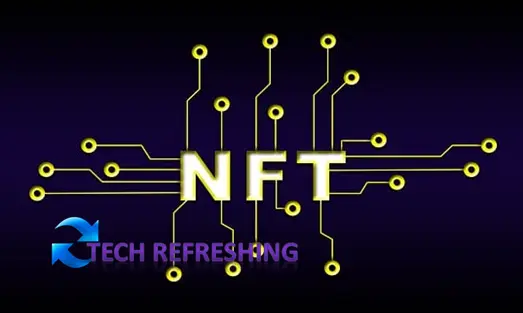
The concept of digital ownership has been transformed by NFTs. In the absence of NFTs, it was challenging to verify ownership of digital assets. Digital files could be effortlessly duplicated and shared without recognizing or compensating the original creator. However, NFTs offer a distinctive digital signature that is impossible to replicate or copy. This signature serves as proof that the NFT owner is the legitimate owner of the digital asset.
NFTs have demonstrated their ability to verify ownership of diverse digital assets, including digital art, music, and video game items. In the realm of art, NFTs have enabled artists to market their work as individual, exclusive pieces. This is a considerable shift from the conventional art scene where artists would vend several copies of the same artwork. NFTs have given musicians the opportunity to sell their music as distinctive pieces and provide exclusive advantages to those who purchase their NFTs.
A well-known instance of NFTs utilized for asserting ownership of digital assets is exemplified by the NFT sale of the renowned digital artist Beeple. In March 2021, Beeple auctioned an NFT at Christie’s for $69 million, which symbolized a digital artwork named “Everydays: The First 5000 Days.” This sale was a pivotal moment in the evolution of NFTs, demonstrating their capacity to revolutionize the art industry by enabling artists to market their creations as singular, unparalleled pieces.
NFTs have gained traction in the gaming industry, especially in blockchain-powered games, where they enable players to possess in-game items as NFTs, giving them exclusivity and worth. As a result, this has given rise to a novel market for gamers to exchange, purchase and trade valuable in-game items, offering a fresh approach for gamers to earn revenue from their pastime.
NFTs have revolutionized digital ownership by providing a way to prove ownership of digital assets. NFTs have been used to sell unique digital art pieces, music and video game items, creating new markets and opportunities for creators and collectors alike.
NFTs and Social Media
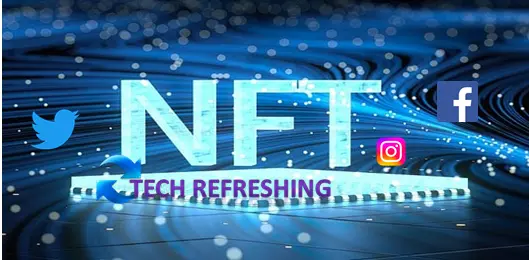
People have a special chance to monetize their online presence because to the convergence of NFTs and social media. Platforms for social media give users a place to establish online personas, communicate with others, and share experiences. By offering a means to validate ownership of their digital assets, NFTs enable people to monetize the content they post on social media.
There are multiple methods to generate revenue from social media content using NFTs. One of the ways is to vend NFTs symbolizing digital content such as tweets or Instagram posts to collectors who crave an extraordinary piece of social media heritage. The other approach is to utilize NFTs to provide exclusive content or encounters to supporters. For instance, a musician may offer an NFT that signifies a VIP concert experience or a meet-and-greet to their fans.
NFTs could have a huge impact on social media influencers. Influencers are those who have a sizable social media following and have the power to affect the actions of their followers. Influencers can monetize their content utilising NFTs in a novel way and provide unique experiences to their viewers. Influencers now have a new source of income, which enables them to further monetize their online presence.
In addition, NFTs can help influencers establish a stronger digital identity. By creating unique digital assets and selling them as NFTs, influencers can prove ownership of their content and establish themselves as the rightful owner of their online presence. This can help influencers protect their brand and increase their value to potential partners and advertisers.
Nevertheless, incorporating NFTs into social media also poses potential limitations. The process of designing and selling NFTs can be expensive, which may restrict smaller creators from participating. Moreover, employing NFTs can raise environmental apprehensions due to the energy-intensive mechanisms of blockchain technology.
The convergence of NFTs and social media offers a fresh avenue for people to earn income from their online existence and build a robust digital persona. NFTs can facilitate the selling of digital content, provide unique experiences to supporters, and create a fresh source of revenue for influencers. However, there are possible limitations to employing NFTs in social media, and it is crucial to weigh these factors before wholeheartedly embracing the technology.
Digital Identity and NFTs
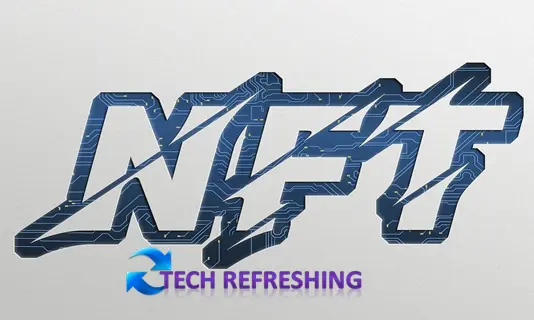
NFTs have the potential to impact digital identity by creating a new way for individuals to establish and prove ownership of their digital assets. Digital identity refers to the collection of data that represents an individual online. This data can include personal information, social media profiles and other digital assets.
NFTs have a close relationship with the creation of digital identity because they provide a unique digital signature that can be used to prove ownership of digital assets. By creating and selling NFTs, individuals can establish themselves as the rightful owners of their digital assets including social media profiles, digital art, music and video game items. This can help protect their brand and increase their value to potential partners and advertisers.
Utilizing NFTs for digital identity can offer a possible advantage of establishing a more robust and secure online persona. By using NFTs to verify ownership of digital assets, individuals can safeguard their online reputation and deter others from asserting ownership over their content. This can be particularly critical for creators who depend on their online presence as their main source of income.
However, integrating NFTs for digital identity may also have possible limitations. One apprehension is the expense of designing and vending NFTs, which might prevent smaller creators from participating. Furthermore, the employment of NFTs can raise environmental concerns due to the energy-intensive mechanisms of blockchain technology.
NFTs can potentially influence digital identity by offering a novel approach for individuals to establish and verify the ownership of their digital assets. Although utilizing NFTs for digital identity can have advantages, there are also apprehensions to contemplate. It is crucial to thoroughly evaluate the potential advantages and limitations of NFTs before wholeheartedly adopting the technology.
NFTs and the Future of Social Media
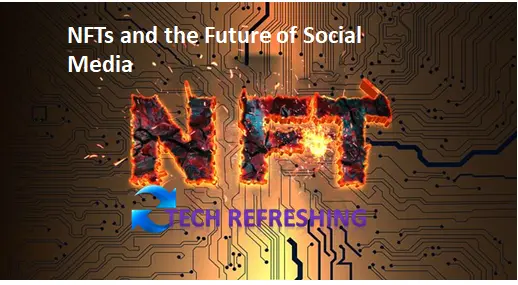
NFTs possess substantial potential to influence social media, as they provide a fresh approach for individuals to earn from their online presence and verify ownership of their digital assets. The implementation of NFTs may transform the way we engage with social media by introducing a novel revenue source for creators and a method to establish ownership of digital assets.
The democratisation of content ownership is one potential effect of NFTs on social media. NFTs enable people to prove that they are the legitimate proprietors of their digital assets, levelling the playing field for smaller artists. This may result in a more inclusive and diversified social media environment where users from various backgrounds can make money off of their contributions.
Another possible implication of NFTs on social media is the emergence of fresh revenue streams for creators. With the help of NFTs, creators can market their digital assets and generate income through a new avenue. This alternative income source can aid in diversifying their revenue streams and minimizing their dependency on conventional advertising revenue.
Nonetheless, there exist possible challenges and opportunities for the future of social media and NFTs. One challenge is the expenses and intricacies involved in creating and marketing NFTs. This could create barriers to entry for smaller creators, resulting in a restricted reach for the technology.
Furthermore, the environmental impact of NFTs poses another challenge. The power-intensive features of blockchain technology have caused apprehensions regarding the carbon footprint of NFTs and their effect on climate change. Hence, there is a requirement to establish sustainable and environmentally friendly approaches for creating and vending NFTs.
Despite the obstacles, social media and NFTs offer prospects for the future. One possibility is the development of fresh NFT marketplaces, providing a platform for creators to vend their digital assets and interact with collectors. Another potential is the incorporation of NFTs into current social media platforms, offering individuals an alternative means to earn money from their content and claim ownership of their digital assets.
NFTs have the capability to make a substantial impact on the future of social media by establishing fresh revenue streams for creators and democratizing content ownership. Nevertheless, challenges such as the cost and complexity of producing and vending NFTs, as well as their environmental impact, must also be taken into account. It is crucial to assess the potential opportunities and challenges of NFTs prudently to guarantee their constructive influence on social media over the long haul.
Conclusion
NFTs have revolutionized digital ownership and have the potential to significantly impact social media and digital identity. By establishing ownership of digital assets, individuals can protect their online reputation and monetize their content in new ways.
The merging of NFTs and social media has unlocked novel prospects for creators to earn money from their content and claim ownership of their digital assets. Nonetheless, it is essential to take into account obstacles such as the cost and intricacy of creating and vending NFTs, as well as their environmental impact.
As NFTs increase in popularity, it will be fascinating to observe how they shape the outlook of social media and digital identity. The possibility of democratizing content ownership and producing fresh revenue streams for creators is significant, but it is crucial to tackle the obstacles that accompany the technology to ensure its favorable impact in the future.
The possibility of NFTs transforming social media and digital identity is substantial, and it will be fascinating to witness their influence on the future of the virtual world. The constant improvement of sustainable and eco-friendly techniques for NFT production and sale will be crucial, as will the contemplation of accessibility for creators of all capacities. Ultimately, if the challenges are resolved, and opportunities are utilized, NFTs can revolutionize our understanding of digital ownership and online identity.

